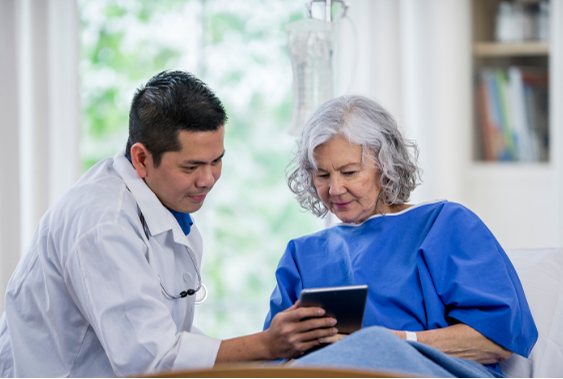New health care law puts patients in the driver’s seat.
It’s no secret that technology is evolving at what feels like the speed of light and health care technology is no exception. We can schedule appointments, pay bills and even meet with our doctors without leaving the comfort of our own homes. And now, under the 21st Century Cures Act, access to our personal health care information will be just as easy.
Leveraging technology. Empowering patients.
The 21st Century Cures Act was signed into law in December 2016. This wide-ranging health care initiative funds medical research and development, medical device innovation, mental health care and research and opioid addiction prevention and treatment. It also paves the way for patients to have quicker and easier access to their health care information — at no cost.

Better accessibility. More control.
To align with 21st Century Cures Act guidelines, HM has implemented several new patient-centered enhancements that will give our patients more control over how they receive personal health care information.
Patients can now get their non-sensitive lab results and COVID-19 test results via their MyChart accounts. This helps patients receive their test results sooner and eliminates follow-up calls to providers to find out their results.
One new feature alerts a patient’s care team when their patient is admitted to the hospital. Under the new admit, discharge and transfer (ADT) event notification, when a patient is admitted to, discharged or transferred from the hospital, the patient’s specialty and primary care providers on record are now notified. This keeps patient care teams in the loop, facilitating better patient care.
More information. Better patient experience.

Another new change allows providers to share their patients’ clinical/progress notes to their patients’ MyChart accounts, upon request. These notes summarize important details from a patient’s recent office or hospital visit and may include observations, test results, medications and/or suspected or confirmed diagnoses using medical terminology. These notes don’t replace the education or comments providers have always included in their patients’ MyChart accounts but will encourage clinical transparency and give patients access to more detailed health information.

“Each of these patient-centered enhancements will help keep our patients informed and connected and improve the overall patient experience,” said Dr. Desai. “At the same time, this supports our efforts in transparency, interoperability and efficiency while maintaining our promise to always put our patients first.”
